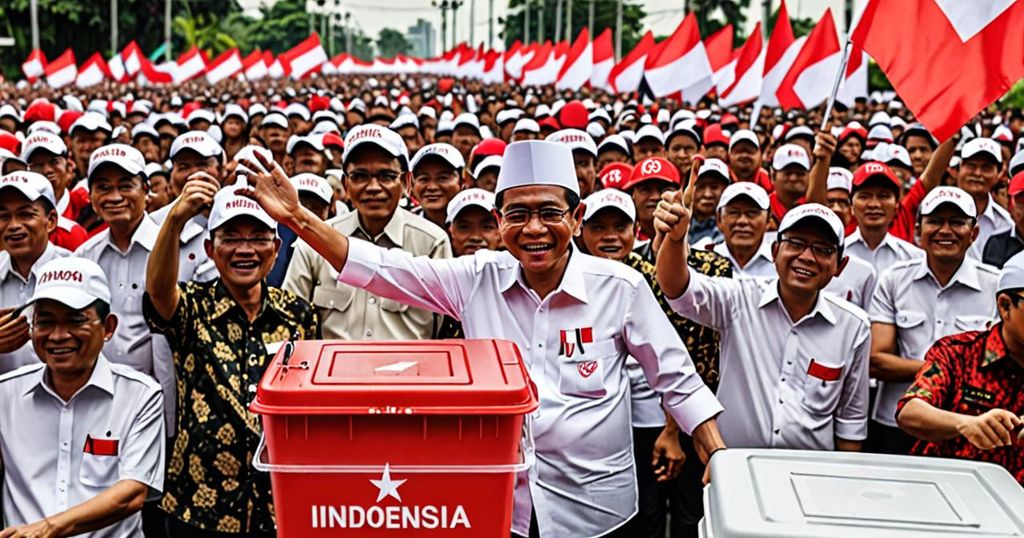The recent developments in Indonesia’s presidential election have prompted widespread concerns regarding the country’s electoral integrity. The potential inauguration of Prabowo Subianto as the next president has brought to light numerous irregularities and suspected foul play in the electoral process.
Critics have voiced disapproval of the Election Commission’s decision to halt the public display of ongoing official vote tallies, citing a lack of transparency and raising accusations of state intervention and political maneuvering by those in power. Additionally, there are allegations of government officials using welfare resources to secure votes for Prabowo, as well as the contentious nomination of President Widodo’s son as his running mate. These issues have severely damaged the credibility of the election and have sparked doubts about the fairness of the process.
The unofficial quick-count results on election day indicated a substantial lead for Prabowo, with nearly 60% of the vote, signaling a clear victory over his rivals. Nevertheless, former Jakarta governor Anies Baswedan has expressed intentions to challenge the election results, citing concerns about state neutrality and the fairness of the electoral process.
Civil society groups have echoed these concerns, urging political parties to call for a legislative inquiry into what they describe as “strong indications” of fraud leading up to the election. Suspicions have also arisen due to the sudden surge in votes for the Indonesian Solidarity Party (PSI), led by President Widodo’s youngest son, prompting calls for a thorough examination of the election results.
Moreover, the Election Commission’s removal of live vote count numbers from its online platform has attracted significant criticism, with allegations of influential parties being involved in inaccuracies that resulted in the removal of the vote count display.
In spite of these irregularities, critics of Prabowo’s rivals have cautioned them to proceed with caution in their criticisms, as there is a risk of retaliation by state agencies. Recent reports of corruption allegations against former Central Java governor Ganjar Pranowo and former Jakarta governor Anies Baswedan have raised concerns about potential use of legal instruments to weaken political opponents.
The allegations of corruption against Ganjar Pranowo and the reports against Anies Baswedan have been perceived as efforts to undermine their credibility and damage their political careers. Observers have also noted a pattern of using legal instruments to weaken political opponents, casting doubt on the independence and integrity of state institutions.
These recent developments have brought into question Indonesia’s electoral integrity and the potential for political interference in the democratic process. The controversies surrounding the election and the subsequent backlash from various quarters emphasize the necessity for greater transparency, accountability, and dedication to upholding the principles of free and fair elections in Indonesia.

Leave a Reply